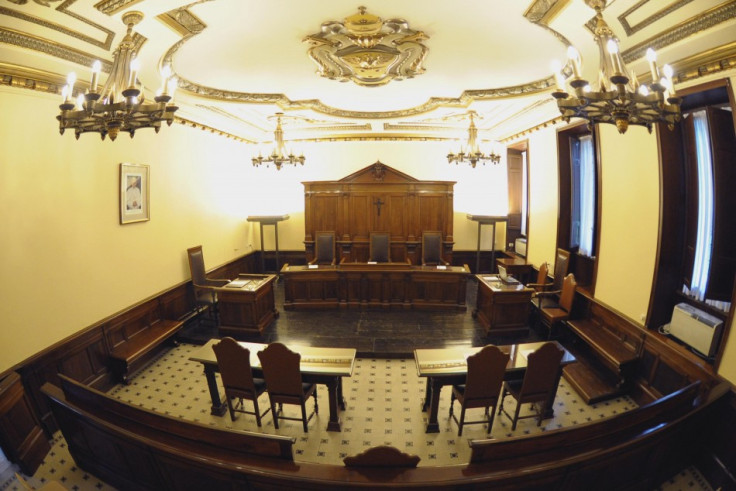Vatileaks: Pope Benedict's Former Butler Paolo Gabriele to Face Trial
Paolo Gabriele faces trial along with a Vatican computer expert Claudio Sciarpelletti.

The trial of Pope Benedict's former butler Paolo Gabriele is to begin in the Vatican. Gabriele has been accused of laying hands on confidential documents and further leaking them to the Italian media, which has become a huge embarrassment for the Vatican in recent times.
The accused admitted to leaking the sensitive documents saying he wanted to expose the "evil and corruption" inside the church. Claiming to be an agent of the Holy Spirit, he said the pope was not sufficiently informed on the happenings.
The father-of-three is most likely to be convicted of charges of aggravated theft as he had already confessed.
"I reached the point of no return. I was sure that a shock, perhaps by using the media, could be a healthy thing to bring the Church back on the right track," Gabriele told the prosecutors earlier.
The 46-year-old may spend several years behind bars if he is proven guilty of his charges. He is facing trial in front of a three-judge panel along with a Vatican computer expert Claudio Sciarpelletti who faces similar charges. Sciarpelletti has been accused of aiding and abetting a crime.
If convicted, the duo will be spending their time in an Italian jail as there is no prison in the world's smallest state. There is also speculation that the pontiff may pardon Gabriele.
The media are not allowed inside the Vatican tribunal nor will the trial be recorded. Eight Vatican-accredited reporters alone will be reporting the trial.
Officials also warn that there may be other "moles" inside the church who may be detained in the future. Previously, Gabriele revealed that "about 20 of them" were working together.
Gabriele was one of the closest people to the pontiff who also used to serve the pope meals and helped in his dress.
He has been accused of stealing some of the pope's personal papers which were found in his apartment by the police. The sensitive documents revealed a power struggle within the Roman Catholic Church even at the highest levels.
The documents also pointed out how contracts were passed on to "favourite" companies and individuals.
© Copyright IBTimes 2025. All rights reserved.






















